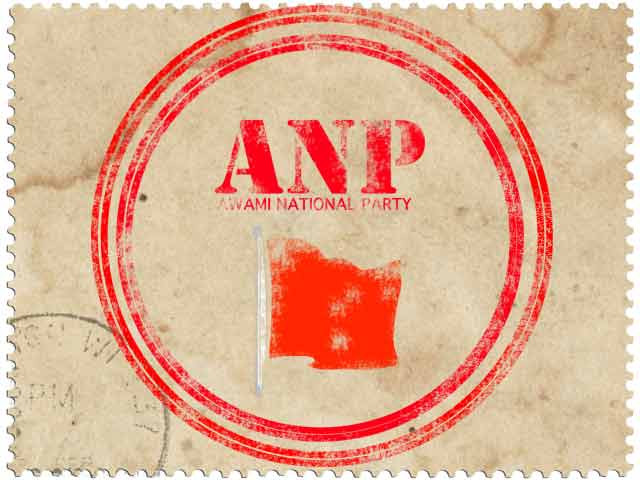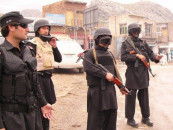ANP and the Taliban: A violent relationship
Bilour’s assassination follows a string of Taliban attacks on the ANP.

ANP and the Taliban: A violent relationship
The death of 69-year-old Taliban critic Bashir Ahmed Bilour has cast a dark shadow on a province already ravaged by deadly militancy – and raised a number of questions about the future of security in the region.
Bilour’s assassination follows a string of Taliban attacks on the Awami National Party (ANP) and security analysts agree the frequency of such attacks is related mainly to a “clash of ideologies”.
Dr Ayesha Siddiqa believes the ANP’s losses in militant attacks are “mainly an ideological issue, but to an extent, a geographical issue as well”. Bilour’s party is leading the government in a region infested with militants, especially along the border with Afghanistan.
Asked why it was not just avowedly secular parties like the ANP but politico-religious parties which have also been targeted by insurgents, Dr Siddiqa pointed out that parties like the Jamiat Ulema-e-Islam-Fazl (JUI-F) had been targeted in the past because “they were still pliable and ready to compromise”.
Security expert Lt Gen (retd) Talat Masood was clear as to why the ANP in particular is a target for militants. “The ANP is a secular party. They are in the government. They represent a democratic face. The Taliban want to destroy the authority of the state and demoralise it,” he said.
“There is no doubt that the ANP has stood up resolutely against the Taliban, while other political parties just protect themselves and barely speak out,” Masood added. “The ANP is the vanguard as far as the fight against terrorism is concerned.”
This also links back to the fact that the ANP, when initially came to power in the province after the 2008 elections, had not been vocally anti-Taliban. It had rather pursued a conciliatory policy – as time went by, however, this stance faded, and so, attacks on the party by militants continued to increase; Bilour is one of many ANP leaders who have been targeted and killed in recent years.
Pakistan’s former ambassador to Afghanistan Rustam Shah Mohmand pointed out that ANP’s reconciliatory stance never lasted because the federal government itself had never “adopted a nationwide strategy – since the Pakistan Peoples Party (PPP) has no clearly enunciated goal (regarding the Taliban), and have left it completely to the military, the ANP has also focused on more mundane, everyday issues (in government)”.
Lt Gen Masood shared the same opinion. “There is no coherent plan to take on Taliban insurgents. There is no consensus on the national front,” he said.
Dr Siddiqa, however, pointed out that ANP’s increasingly anti-Taliban approach was concerned more with a tried and failed policy. “[The ANP] talked to them and figured out the Taliban wouldn’t change. What do you do? It has been conciliatory, but it has suffered,” she said and pointed out the ANP peace deal with Mullah Fazlullah, then Taliban chief in Swat, and how it had failed to set an example.
The question then arises as to whether two back-to-back high-profile attacks, one on the ANP rally and the other on the Peshawar airport, indicate a ‘comeback’ of the Taliban, which the army has repeatedly said has been weakened by splitting into several factions.
But experts believe this is part of a pattern. Dr Siddiqa said there was no indication the Taliban were regrouping, and that their successes were linked to the failure of the military to address the larger problem of militancy in general. “The influence of the Taliban has always been there,” she added.
Mohmand blamed the successes of militants on a decline in “professional competence”, saying that “interception of attackers at the planning stage” was not taking place. He also believed that smaller factions of the Taliban were more dangerous, “especially because they are becoming more desperate”.
However, the experts were certain that Saturday’s attack on Bilour was part of a larger pattern, and that, as Mohmand said, “It’s not going to end there”.
Published in The Express Tribune, December 23rd, 2012.



















COMMENTS
Comments are moderated and generally will be posted if they are on-topic and not abusive.
For more information, please see our Comments FAQ